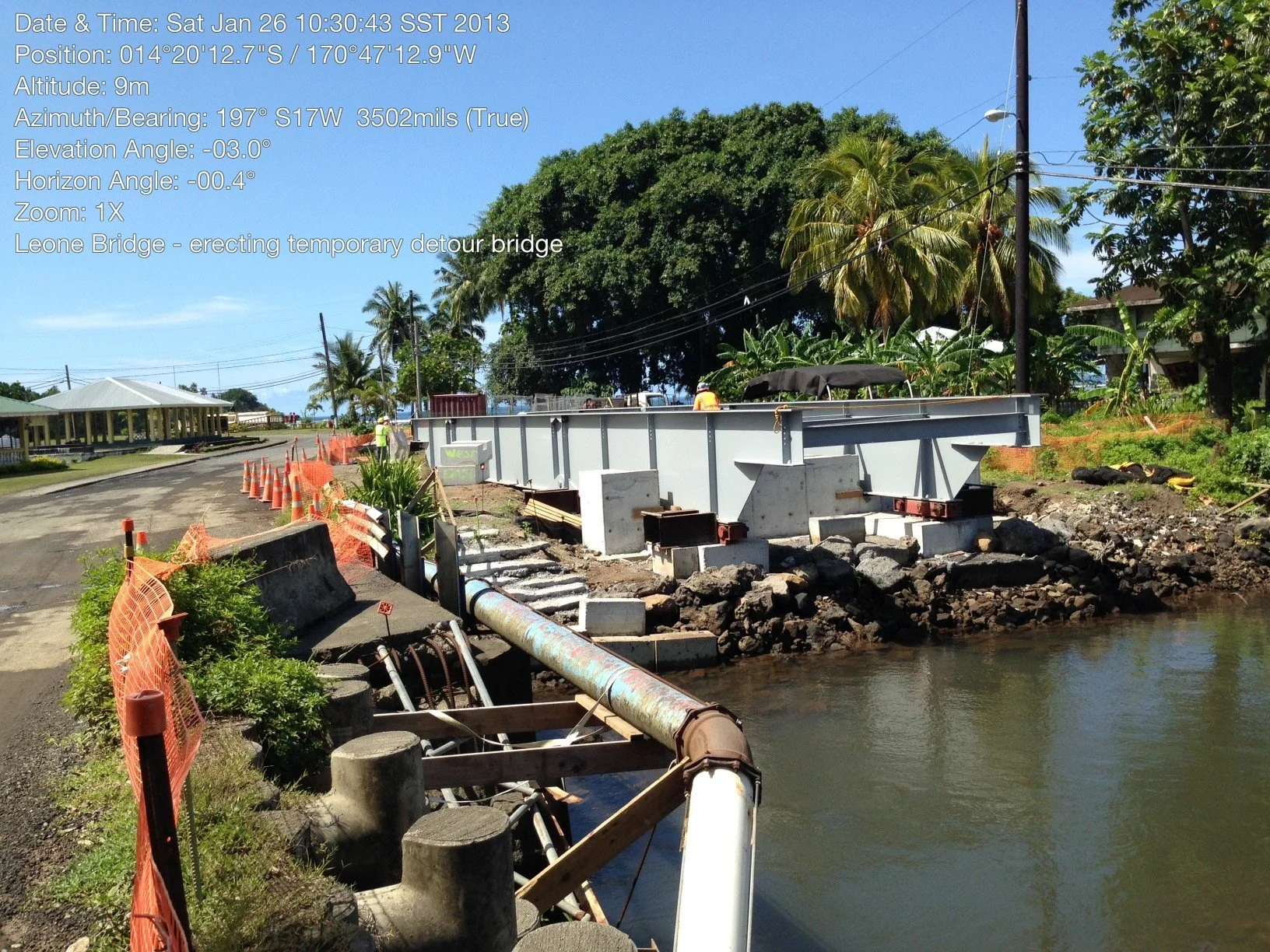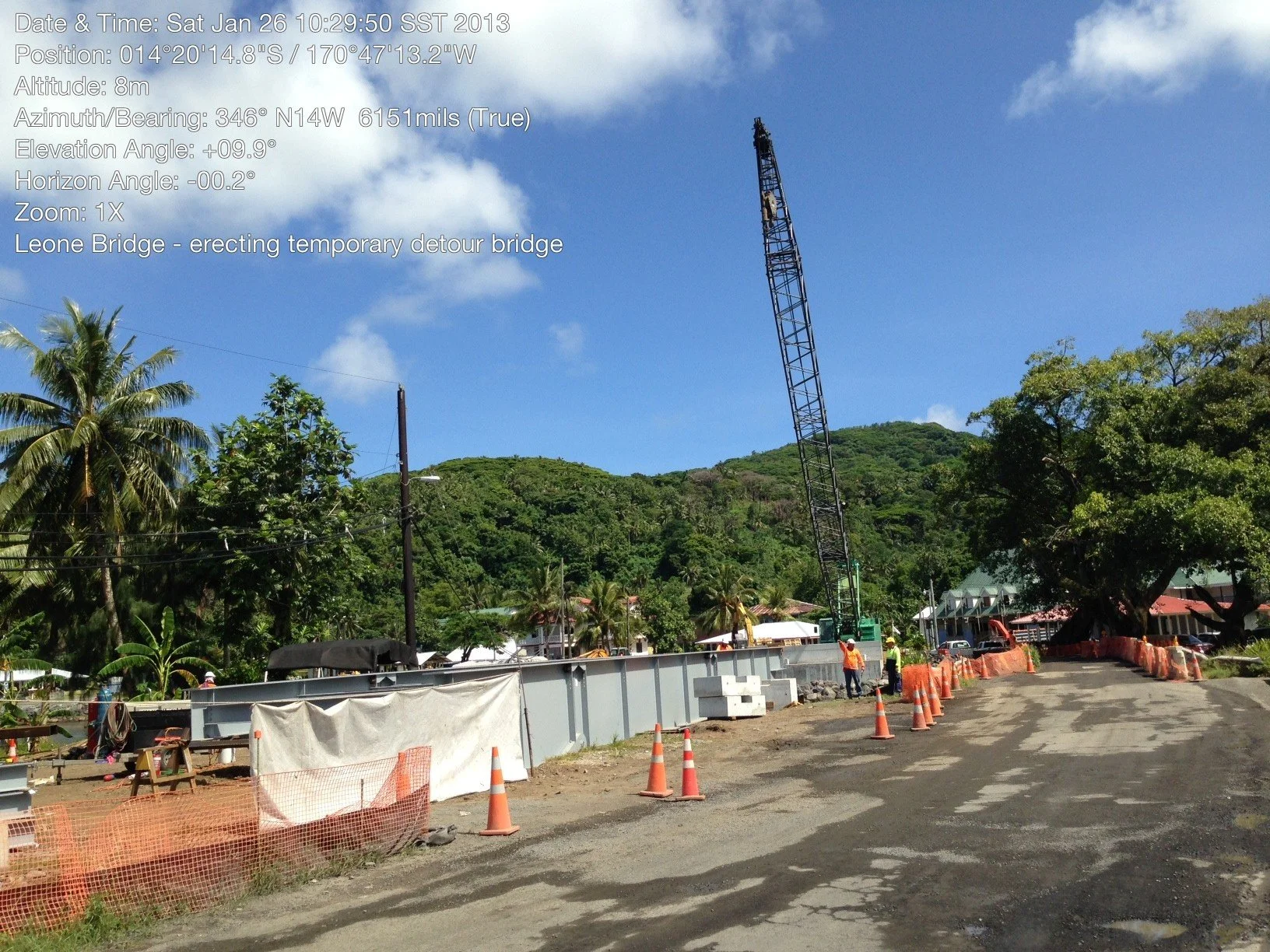Death in Paradise
By Colin Stewart (Tyrone 1983-1990)
“I still hear his mother screaming, ‘My Upu! My Upu!’ And I don’t think that sound will ever leave me.”
I was working as a civil engineer in American Samoa, rebuilding a bridge destroyed by the 2008 tsunami. It was a big project in a small village called Leone—thirteen people from that village died in the tsunami. So rebuilding that bridge… it felt meaningful.
On the morning of July 10th, 2013, I was on-site early for a meeting with the construction crew. As I was leaving, I reminded the foreman, Pou, to adjust a silt curtain that was out of place. It was something small. Routine. I shared a brief joke with one of the workers, Upu, before I got in my truck and headed back to the office.
What I didn’t know was that, twenty minutes later, a chain of decisions would start unfolding. The team needed to reposition a heavy anchor block for the silt curtain, and they asked our crane operator, Neil, to do the lift. The block was stored beneath live power lines, and Neil, for reasons only he will ever know, hatched a plan to lift it out from under the power lines with the crane.
The crew on the ground—Upu, the dogman, and three spotters—understandably didn’t like the plan. They knew it was too dangerous. They discussed using a front-end loader instead.
Then they saw the crane boom begin to move. So they got into their positions. As the lifting gear came close to the power lines—just a meter and a half above—Upu signalled for Neil to stop. Then he ran. He ran across the road, under the boom, toward the crane cab to talk to Neil.
He touched the crane’s track. And that’s when it happened.
There was a flash. Upu screamed and fell. The crane’s lifting chains had touched the power cable, and 7,620 volts of electricity travelled up the crane’s main cable, down the boom, around the isolated cab and into Upu. His coworkers rushed to him, started CPR, loaded him into a pickup truck.
By the time I got the call from Basil, my Project Manager, Upu had already been rushed to the hospital. He asked me to pick up Upu’s wife and two of his kids from their village.
They were silent as they got into my truck. Worried, but silent. I was speeding along the coastal road when a cop pulled me over. I told him what was happening, and he let me go with a warning. A few minutes later, my phone rang again.
It was Basil. ‘You can slow down,’ he said. ‘Upu didn’t make it.’
I didn’t say a word to his wife or kids. I just kept driving. I think they knew from how quiet I went.
When we reached the hospital, his coworkers were waiting at the front doors. I was still parking when I heard it: Upu’s mother screaming, ‘My Upu! My Upu!’ It’s a sound I’ll never forget. It still gives me chills, even now.
Fa’ateleupu Nakiso—everyone called him Upu—was 39. He had five young kids. He was the only child of his elderly parents. The sole provider for his entire family.
One of his coworkers said it best: ‘I can’t sleep and I can’t cry. I look in the mirror and think—I could be Upu. I look at my kids and think—they could be his kids.’
It’s been over a decade. I still think about him. I still dream about that day. Sometimes I lie awake and wonder if he suffered. I hope he didn’t.
But what I know is this: he shouldn’t have died. And five kids shouldn’t have lost their dad that day.



